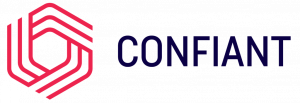[/vc_wp_text]
Tell us about your role and journey into technology. What made you start Confiant?
Meeting Jerome Dangu, the Co-Founder and CTO of Confiant. His in-depth knowledge of digital security was very compelling. As I started researching and learning more about the digital ad ecosystem, it became abundantly clear that this was a problem that needed a real solution. Every platform and publisher I spoke to during my research clearly stated they had issues with malicious and low-quality ads. There was no viable solution in the market to actually protect publishers from these issues and users were beginning to take action into their own hands in the form of ad blockers. With an amazing co-founder at my side, it was an easy decision to take the leap.
How is Confiant different from other AdTech platforms?
Confiant is not actually an AdTech company. We are a SaaS security vendor for the digital ad ecosystem, built to address one specific and prolific problem: The lack of control that ecosystem participants have on the ad tags that are at the core of all ad serving. This lack of control leads to security risks (forceful redirects, exploit kits, cryptojacking, etc.), quality issues (poorly built creatives with load or audio or improper imagery), and privacy issues (data leakage, GDPR, etc.). Confiant is empowering publishers and platforms to control the ads they serve their sites and their users.
What are the core tenets of your business development model? How does Confiant add value to the programmatic AdTech landscape?
We deliver control. We are committed to maximum protection, with maximum monetization, at the minimum possible cost. Publishers need someone who is on their side when it comes to policing the AdTech ecosystem.
How different is the Programmatic Advertising ecosystem in the US today than when you first started here?
Significantly evolved. Programmatic was less than a quarter of display spend in 2013 and it’s now over 80 percent. The move to kill flash took away a major attack vector for the criminals. The advent of header bidding unlocked even more explosive growth. Privacy, Ad Fraud, Malware, all these discussions were ancillary to the industry’s growth five years ago — now they are front and center.
How does it compare against the digital advertising marketplaces in Europe and the APAC region?
Europe and the APAC region appear to have had a slower growth when it comes to programmatic. Header bidding has had slower adoption, which is something I’d directly attribute that to the intrinsic lack of control the publisher suffers from in programmatic.
Do you see GDPR impacting your business operations?
On multiple levels. GDPR clearly sucked the air out of the room and required almost exclusive focus from most industry participants for several months. The adoption phase of new GDPR compliance standards and processes is still ongoing too. For Confiant, specifically, GDPR is also an opportunity as intrinsic to the law as the need for platforms and publishers to control the data tracking from advertisers on behalf of users.
Where do you see Programmatic Advertising industry further evolving in 2020?
More control for the publishers and more transparency across the ecosystem.
How do new technologies such as Customer Intelligence, Audience Data and AI impact the ecosystem?
When used properly, they deepen the knowledge available to advertisers, allowing for more intelligent and impactful advertisers. When used improperly, they risk negatively affecting the user experience and doing more harm than good.
Tell us more about bad ads and how you identify them for the customers? Do you find good ad definition consistent across the industry?
We use multiple layers of detection that are optimized to identify the malicious actors. Our 1st generation system was a tag scanner, loading ad tags in a test environment and initiating a non-human ad call to receive the creative. We pushed that technology to its limits and found it wanting. The data set generated by the scanner could be compromised by the malicious actors, rendering the efficacy weak. As importantly, the scanner could at best only detect, which is not the same as protecting. So we built our 2nd generation system to solve both problems. Our real-time verification works by analyzing the real impression generated by real people in real browsers, and when we detect a malicious ad, we block it before it serves. Confiant is the first security vendor to have a system that can actually protect publishers and their users (and, yes, it’s patent pending).
We have yet to find a consistent definition of ‘good’ — there remains too much opacity to the marketplace — something we are helping to solve!
What startups in the advertising technology industry are you watching keenly right now?
I’m a big fan of what Beeswax is up to (disclaimer: Ari Paporo is an advisor to Confiant) and Staq too. Overall though, the reality is that the team at Confiant and I are almost maniacally focused on the malvertisers we fight. Those criminals are our competition and they’re the ones with whom we’re in an arms race, so we pay the most attention to how they’re adapting rather than looking at what companies inside the industry are doing.
What marketing and sales automation tools and technologies do you currently use?
Our efficacy at detecting and protecting from malicious ads better than others has always been the main driver of our growth. We started building a sales team a year ago and added marketing since midsummer 2018 so we don’t use any special technology yet.
Could you tell us about an outstanding digital campaign?
We believe that the world’s most sophisticated advertisers out there aren’t the majors like P&G or Verizon, but the criminals who exploit our industry to attack users for their own selfish ends. The most impactful campaign we’ve seen this past summer was on June 11th, when one of the more sophisticated malvertising criminal gangs attacked millions of consumers with a fake Chipotle ad. Mediapost wrote about it.
How do you prepare for an AI-centric world as a business leader?
I believe we already are in an AI-centric world. Every SaaS business inherently delivers its service via technology. Our sector, security, is one those that requires human intelligence and artificial intelligence to be fused in order to maximize our clients’ protection.
How do you inspire your people to work with technology?
Give them ownership and control over the processes the technology is executing. Effective security tech requires technology and human ingenuity to work hand in hand.
One word that best describes how you work.
Triage.
What apps/software/tools can’t you live without?
My notebook (i.e. pen and paper)
What’s your smartest work-related shortcut or productivity hack?
Accepting that sometimes the triage is going to result in some things never getting done.
What are you currently reading?
- Non-fiction: The Origins of Virtue by Matt Ridley
- Fiction: Salvation by Peter F. Hamilton
- I read either printed books or on my kindle. Reading drives my consumption; I’ve never done more than dabble in podcasts.
What’s the best advice you’ve ever received?
Strong beliefs, loosely held. Fred Wilson (in a blog post)
Something you do better than others — the secret of your success?
As per my answer to 15: Triage. Being able to pick the right thing to get done, week after week — it adds up.
Tag the one person in the industry whose answers to these questions you would love to read:
Ari Paparo of Beeswax
Thank you, Louis! That was fun and hope to see you back on MarTech Series soon.
Confiant is the sixth startup Louis-David (“LD”) has been a part of and the second he cofounded. When not busy keeping the Confiant team aligned and caffeinated, LD is most likely planning his next offshore sailing adventure or working on his yoga headstands.

Confiant is a cybersecurity company born from the recognition that the world’s most sophisticated advertisers aren’t Verizon or P&G, but criminals using the industry for their own selfish ends. These criminals are hijacking programmatic advertising and giving publishers a bad name.
Confiant protects publishers’ and platforms’ reputations, revenue, and resources with always-on anti-malware software that provides protection for desktop, mobile, and video ads. Our sole focus is on helping advertising platforms and publishers rid the world of malware. This focus enables us to evolve quickly and meet our clients’ needs for defeating the bad actors trying to undermine the industry.
It is the first company to come to market with a technology that not only detects malicious activity but actively blocks it. Confiant believes in the intelligent application of this new technology to fight back and make digital media safe for everyone.
The MTS Martech Interview Series is a fun Q&A style chat which we really enjoy doing with martech leaders. With inspiration from Lifehacker’s How I work interviews, the MarTech Series Interviews follows a two part format On Marketing Technology, and This Is How I Work. The format was chosen because when we decided to start an interview series with the biggest and brightest minds in martech – we wanted to get insight into two areas … one – their ideas on marketing tech and two – insights into the philosophy and methods that make these leaders tick.











